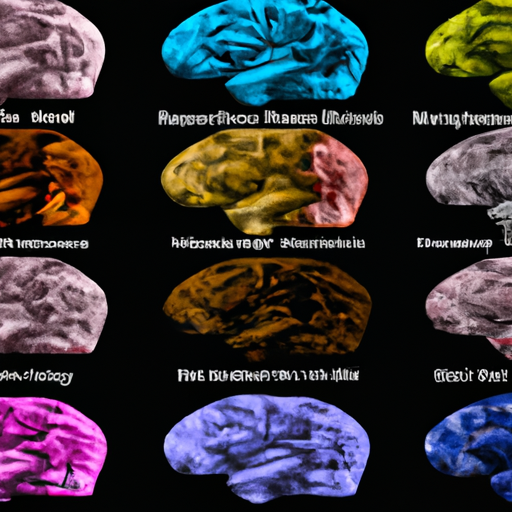Discover how sleep cycles affect every aspect of your physical and mental wellbeing. Learn about the fascinating science behind circadian rhythms and sleep stages that regulate your body. Explore evidence-based strategies to optimize your sleep quality for better health.

Sleep is one of the most fundamental yet complex aspects of human health, playing a crucial role in everything from cognitive function to physical recovery. Understanding how sleep works and its impact on our bodies can revolutionize our approach to health and wellness.
The Architecture of Sleep Sleep isn't simply an off switch for consciousness – it's a sophisticated series of cycles and stages that our bodies move through throughout the night. Each complete sleep cycle typically lasts about 90 minutes, and we generally need 4-6 complete cycles per night for optimal rest. During these cycles, we progress through different stages of sleep, each serving distinct biological purposes.
The first stage is light sleep, where we drift in and out of consciousness easily. Our muscle activity slows, and our eyes make slow rolling movements. This transitional period typically lasts just a few minutes before we enter stage two, where our brain waves begin to show a pattern of brief bursts of activity called sleep spindles.
As we progress into deep sleep (stages three and four), our brain waves slow dramatically. This is when our bodies conduct vital repair work – releasing growth hormones, rebuilding tissues, strengthening the immune system, and consolidating memories. This phase is crucial for physical restoration.
REM (Rapid Eye Movement) sleep, often called paradoxical sleep, is perhaps the most fascinating stage. Our brains become highly active, similar to waking states, while our bodies remain paralyzed. This is when most dreaming occurs, and it's essential for emotional processing and creative thinking.
Circadian Rhythms and Sleep Regulation Our sleep-wake cycle is governed by circadian rhythms – internal biological clocks that respond to environmental cues, particularly light. These rhythms influence not just sleep but also hormone production, body temperature, and metabolism. Understanding and working with these natural rhythms, rather than against them, is key to optimal sleep.
The hormone melatonin plays a crucial role in this process, naturally increasing in the evening as darkness falls and decreasing with morning light. This is why exposure to blue light from electronic devices in the evening can be so disruptive to sleep – it suppresses melatonin production and confuses our internal clock.
The Impact of Poor Sleep Chronic sleep deprivation has far-reaching consequences that extend well beyond feeling tired. Research has linked insufficient sleep to increased risk of cardiovascular disease, weakened immune function, impaired cognitive performance, and mental health issues. Even short-term sleep debt can affect judgment, mood, and ability to learn and retain information.
Weight management is also significantly impacted by sleep. Lack of sleep disrupts the balance of hunger and satiety hormones, leading to increased appetite and cravings for high-calorie foods. Studies have shown that people who consistently get less than seven hours of sleep are more likely to have higher body mass indexes.
Optimizing Your Sleep Environment Creating the ideal sleep environment is crucial for quality rest. Temperature plays a significant role – most people sleep best in a room between 60-67°F (15-19°C). Complete darkness is important for melatonin production, so consider blackout curtains or an eye mask if needed.
Noise control is another crucial factor. While complete silence works best for some, others find white noise or nature sounds helpful for masking disruptive environmental sounds. The key is consistency – your brain adapts better to familiar background noise than to irregular disturbances.
Developing Healthy Sleep Habits Establishing a consistent sleep schedule is perhaps the most powerful way to improve sleep quality. Going to bed and waking up at the same time every day helps regulate your circadian rhythm and makes it easier to fall asleep and wake up naturally.
A relaxing bedtime routine signals to your body that it's time to wind down. This might include gentle stretching, reading, meditation, or a warm bath. The key is to avoid stimulating activities and bright screens in the hour before bed.
Diet and exercise also play important roles in sleep quality. While exercise generally improves sleep, timing matters – vigorous exercise too close to bedtime can be disruptive. Similarly, caffeine, alcohol, and large meals close to bedtime can interfere with sleep quality.
When to Seek Help While occasional sleep difficulties are normal, chronic sleep problems warrant professional attention. Sleep disorders like insomnia, sleep apnea, and restless leg syndrome are common and treatable. If you consistently struggle with sleep despite implementing good sleep hygiene practices, consider consulting a sleep specialist.
The Future of Sleep Science Research continues to uncover new insights about sleep's role in health and wellness. From the discovery of the glymphatic system – the brain's waste clearance mechanism that's most active during sleep – to understanding how sleep influences genetic expression, our knowledge of sleep's importance continues to expand.
As we learn more about the complex relationship between sleep and health, one thing becomes increasingly clear: prioritizing sleep is not a luxury but a necessity for optimal physical and mental functioning. By understanding and working with our body's natural sleep mechanisms, we can enhance not just our nights but our days as well.



